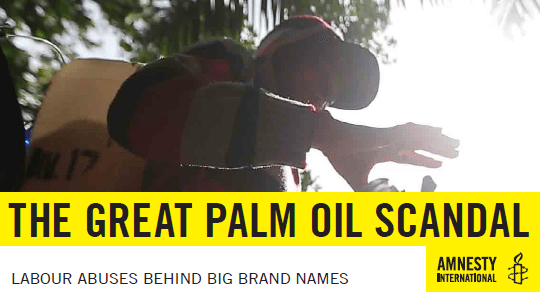6 Desember 2016 1 menit
Skor Kosong atas Kebijakan Tenaga Kerja Penyandang dana Wilmar

Laporan terbaru dari Amnesty Internasional telah mengungkapkan bahwa Wilmar terlibat dalam praktek-praktek eksploitasi tenaga kerjanya dengan sistematis di perkebunan kelapa sawitnya di Indonesia. Laporan, yang berjudul “The Great Palm Oil Scandal: Labour Abuses Behind Big Brand Names” diidentifikasi melakukan berbagai pelanggaran termasuk kerja paksa, tenaga kerja anak, diskriminasi gender dan kondisi kerja yang berbahaya dan eksploitatif yang membahayakan kesehatan para pekerjanya.
Menurut website ForestsandFinance.org, antara tahun 2010 dan 2016, Wilmar menerima pembiayaan lebih dari USD 1 milyar, setidaknya dari kurang lebih 49 institusi yang berbeda. Dua dari penyandang dana teratas Wilmar memiliki skor kosong atas penilaian kebijakan tenaga kerja anak dan kerja paksa mereka sementara empat lainnya hanya mendapatkan skor parsial. Hal ini memperlihatkan kurang seriusnya komitmen lembaga penyandang dana utama untuk menegakkan berbagai konvensi International Labor Organization (ILO). TuK Indonesia menyerukan kepada seluruh penyandang dana Wilmar untuk secara aktif terlibat dengan Wilmar mengakhiri berbagai pelanggaran atas hak tenaga kerja dalam perkebunannya.
This post is also available in: English
